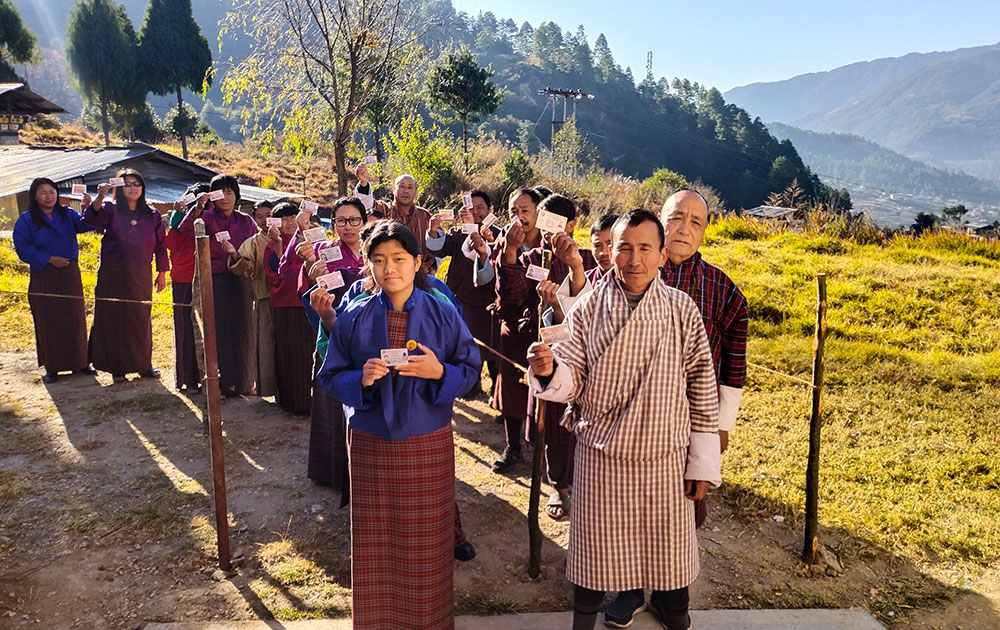Neten Dorji
Trashiyangtse—In an unexpected turn, Thinley Wangchuk, who was considered a heavyweight with significant support in upper Trashiyangtse until the primary round, faced a surprising defeat. The people of Bumdeling-Jamkhar shifted their allegiance to the Bhutan Trendrel Party (BTP), diverging from their primary election choice.
Anticipation before poll day suggested Trashiyangtse would predominantly favour the ruling party, with PDP’s candidate Thinley Wangchuk securing upper Trashiyangtse. However, BTP gained unexpected support, tilting the balance in favor of opposition.
Represented by Thinley Wangchuk, PDP lost by 777 votes to BTP in upper Trashiyangtse. Observers speculate that the absence of political party candidates and shifts in supporters may have contributed to PDP’s loss.
The significant sway towards BTP in the general election indicates a convincing influence by BTP supporters on the electorate.
Thinley Wangchuk expressed surprise at the general election result, citing his higher vote count in the primary election. He emphasised maintaining a clean campaign and a mindset free of corruption.
Acknowledging the two types of richness in politics, he highlighted the challenges of winning voters and the need for a shift in their perspective to prioritise qualified and experienced candidates. He hinted at a potential return to politics if voters change their mindset.
Observers suggest BTP’s victory in the upper constituency may be attributed to the influence of DPT’s supporters. Residents claim big business owners campaigned for BTP, while others cite last-minute influence by BTP’s party workers.
Wangdi, the BTP candidate for Bumdeling-Jamkhar, attributed his win to convincing people about the party and gaining their trust. He emphasised the appeal of new faces bringing new development during the campaign.
BPT secured 184 more votes in EVM and 593 more postal votes than PDP in upper Trashiyangtse, with postal ballots playing a important role in BTP’s victory.
In the Khamdang-Ramjar constituency, voters cited experience and the candidate’s leadership as reasons for choosing BTP, consistent with their preferences in the primary election.
By late afternoon, as postal ballot results were disclosed, BTP led the race in Khamdang-Ramjar, confirming their victory.
In the final results, BTP secured 4,169 votes, representing 65.9 percent of the total vote cast, with a lead of 2,014 votes over PDP’s candidate Kinley Dorji.
Namgay Dorji, the BTP candidate for Khamdang-Ramjar, expressed extreme happiness, attributing his win to the leadership of the president, the president’s popularity in the east, strong supporters, and work experience.
Since 2008, PDP has faced significant setbacks in Trashiyangtse in both constituencies.
Voters revealed choosing BTP with the expectation of it forming the government, while some remained skeptical, and others based their decisions on the candidates’ pledges during the common forum.
A farmer pointed out that, despite PDP’s candidate being young, they perceived PDP’s candidate as weaker than BTP’s, emphasizing the influence of a candidate’s experience depending on the party.
Another voter, a corporate employee, stressed the importance of convincing people to win both the party and the candidate.
Shopkeepers, hoteliers, taxi drivers, and office-goers in Trashiyangtse highlighted BTP’s success due to its strong base of party workers in many gewogs and villages.


